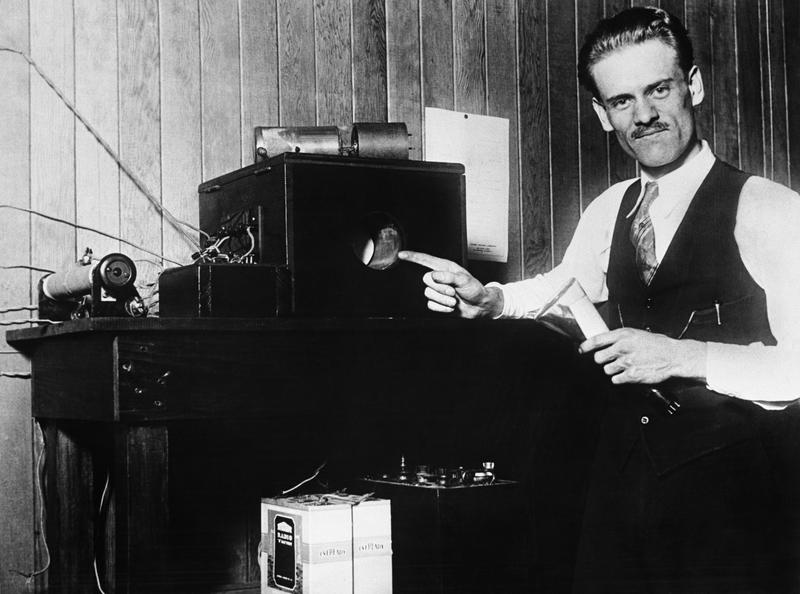Who Invented The Television?
By | December 10, 2018

We know that Alexander Graham Bell invented the telephone and Guglielmo Marconi invented the radio, but do you know who invented the television? Most people don’t, yet the television is one of the most influential inventions ever created and has drastically changed our culture and way of life. Let’s learn about the teenage farm boy who, while living on his family farm with no electricity, invented the television.

His Name was Philo Farnsworth
Even though Philo Farnsworth didn’t have electricity in his house as he was growing up, it didn’t stop him from dreaming big. A tinkerer and inventor all his life, Farnsworth became enamored with electrical inventions. As a teenager still in high school, Farnsworth began toying with the idea of a way to record moving images, transform them into radio waves, and be able to recapture the images and view them again. What he envisioned was akin to the radio, but instead of just sound waves being sent through the air, it would be visual images.

Farnsworth Had a Eureka Moment while Plowing
The young inventor was stymied about how the television waves could be reassembled once they were received. But he couldn’t spend all his time working out the problem. He had work to do on the farm. One day, the 14-year old was guiding the horse-drawn plow through the family’s potato field on their newly-purchased Idaho farm when the straight lines of the furrows gave him an idea. Perhaps he could separate the images into horizontal lines which would be reassembled in the same order when the transmission was captured.

Farnsworth Demonstrated His Invention
Farnsworth continued developing his invention, working on the farm, and along the way, married his sweetheart, Elma. On September 7, 1927, Farnsworth, then just 21 years old, and his young bride traveled to San Francisco to give the first public demonstration of his invention, the electronic television. The public watched as he recorded live action, converted it into a transmission and sent it to a receiver in the next room.

Other Inventors had Similar Ideas
Farnsworth wasn’t alone in his endeavors. There were other inventors who were working toward a similar outcome, but with a different approach. Russian inventor Boris Rosing was attempting to send images over the airwaves a decade and a half before Farnsworth started his tinkering. Both John Logie Baird of England and Charles Francis Jenkins of the U.S. dabbled with designing mechanical televisions with rotating discs in the early 1920s. But they were stuck, like Farnsworth, on how to send the image as data over the air. It was Farnsworth who found a way to do this electronically. The electrical television that Farnsworth created more closely resembles the television we use today.

Farnsworth Thought His Invention Would Change the World
Farnsworth had an overly optimistic belief that his electrical television would change the world. It did…but not in the way Farnsworth imagined. It was Farnsworth’s belief that if people could see moving images of other people and other cultures, it would enlighten people and end conflicts and misunderstandings. He once boasted that “war would be a thing of the past.” His invention has served to educate the public, but the result was not an ideal as he had hoped.

Perfecting the Television Was Farnsworth’s Life Work
Farnsworth moved to California to be closer to the industry. Throughout his lifetime, he held more than 300 patents, all dealing with the television. He worked with other innovators to improve his invention, helping to make it the world-changing invention that it would become.

